WHAT YOUR PEE SAYS ABOUT YOUR HEALTH
According To Eastern Medicine

Eastern medicine can tell you a lot about your pee, which ultimately reveals a lot about your overall health. While Western medicine looks at your urine too, Eastern medicine evaluates it much more thoroughly. The color, odor, viscosity, and other qualities can serve as an excellent indicator of underlying health issues.
TCM designates the bladder as a “yang” organ- one of six that the body houses. Each yang organ is matched with a corresponding yin organ. There cannot be a yang without yin.
While the “yin” organs serve a consistent vital purpose, the yang organs are constantly changing from full to empty. As is the nature of the Bladder.
To determine what your pee means for your overall health, TCM doesn’t just look at the Bladder. It evaluates the Kidneys and any other physical, mental, and emotional body that is linked.
For example, if your bladder feels imbalanced, TCM says that negative feelings of jealousy or paranoia may manifest into physical problems with the Bladder. Oriental medicine also looks at the frequency, color, smell, amount, and internal feeling of urination.
Qi Deficiency
In its basic form, qi is life force energy. Qi comprises everything in our entire world. TCM practitioners treat qi as an important aspect of overall wellbeing, even when evaluating the bladder and kidneys.
If you are experiencing a qi deficiency in either organ, that could mean frequent trips to the restroom- lacking the ability to hold one’s urine. When one experiences pain or discomfort while peeing, this could mean qi stagnation.
Eastern medicine recommends balancing out the body’s qi by eating fermented foods, ginseng, energizing fats, and consuming an overall healthy diet that boosts energy instead of slowing it down. That means avoiding dairy, pork, fried foods, and too much sugar or carbs.
Frequency of Urination
 If you are urinating more often than normal, that should be a red flag that something is wrong. The average person pees about four to six times during the day and one to two times at night. Chinese medicine tells us that frequent urination can mean damp-heat in the bladder or a lack of consolidating urine.
If you are urinating more often than normal, that should be a red flag that something is wrong. The average person pees about four to six times during the day and one to two times at night. Chinese medicine tells us that frequent urination can mean damp-heat in the bladder or a lack of consolidating urine.
Interstitial cystitis (aka bladder pain syndrome) is when lower abdominal pain is experienced while the bladder fills. It’s also combined with other symptoms such as frequent urination. There is no definite treatment for this specific urination problem, but physicians recommend CAM treatments.
TCM typically falls into the category of CAM therapies- Complementary and Alternative medicine- because it is not a formal, westernized practice. According to research published by Translational Andrology and Urology, out of 1,982 interstitial cystitis patients, 55% of patients were told to use CAM therapies, and 84.2% had already tried it.
Color of Urine
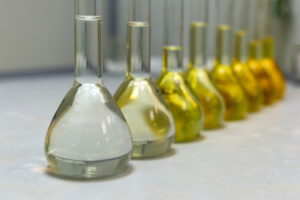 The color of your pee, when healthy, should either be a pale yellow or have a straw-colored-clear tone.
The color of your pee, when healthy, should either be a pale yellow or have a straw-colored-clear tone.
In TCM, deep or darkened yellow urine typically indicates heat accumulation. This is often called excess heat and results from one’s internal organs producing too much heat. Dark yellow urine could also point to yin deficiency.
Clear urine typically means one is consuming large amounts of water, or if not, there could be a yang deficiency in the kidneys. Clear urine should not be a huge cause for concern unless it occurs in a copious volume for an extended period of time. As with Western medicine, too frequent urination can mean Qiao ke or diabetes.
A cloudy color is associated with stagnant “dampness” in the lower abdomen. It is usually paired with symptoms of bloating and low energy.
Perhaps the most worrisome urine color of all is dark (not yellow), pink, or red-tinted.
Red Urine Color (Blood in Urine)
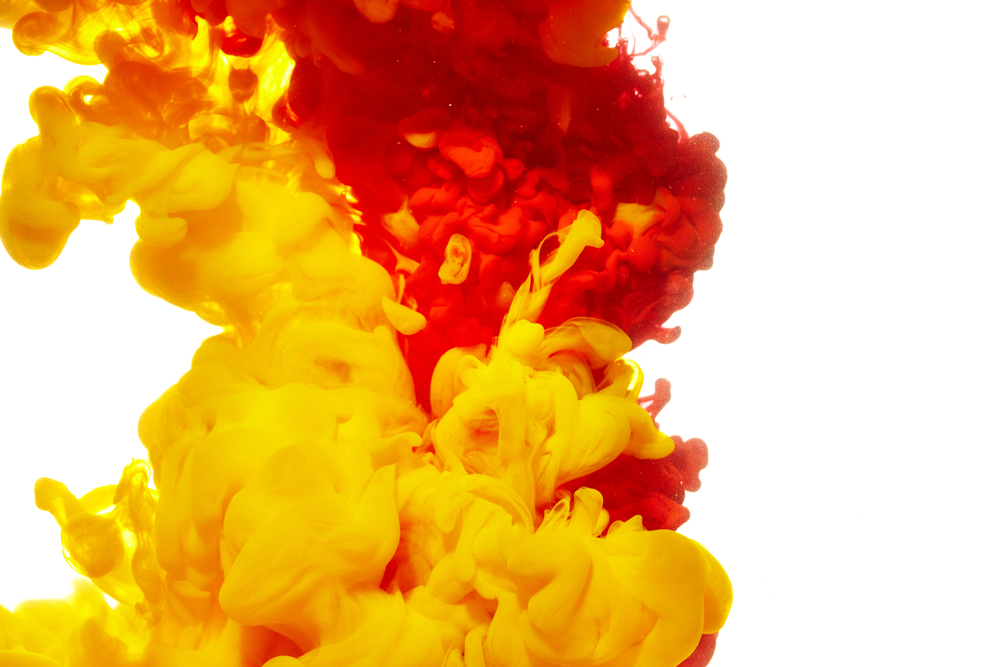 If your pee is red or dark, there may be blood present due to serious kidney issues, bladder stones, or another underlying health problem. First, consult with your doctor to rule out life-threatening issues like kidney disease, cancer, or internal bleeding disorders.
If your pee is red or dark, there may be blood present due to serious kidney issues, bladder stones, or another underlying health problem. First, consult with your doctor to rule out life-threatening issues like kidney disease, cancer, or internal bleeding disorders.
If you are cleared by your doctor, then your urine could be red or pink from less worrisome factors. Medications, supplements, or even some foods can cause the urine to change color. So, pinkish pee doesn’t automatically signal impending doom.
Blood in the urine typically indicates an overheated bladder meridian, which is the result of stress, poor diets, or internal disharmonies. The bladder, kidneys, or spleen will then produce heat pathogens that aggravate the body’s urinary tract and initiate bleeding.
Be aware of your body and how it reacts to the substances you ingest. The color should naturally clear up with time (no life-threatening conditions like cancer present) if you treat the underlying source of the problem with the proper remedies.
Treating Blood in the Urine with TCM Herbs
 In Traditional Chinese Medicine, herbs are selected in a unique healing formula. The type of herbs consumed correspond to the affected organs and are specific to one’s pathogenic condition and symptoms.
In Traditional Chinese Medicine, herbs are selected in a unique healing formula. The type of herbs consumed correspond to the affected organs and are specific to one’s pathogenic condition and symptoms.
Damp-Heat (Liver)
Damp heat in the liver is accompanied by painful urination, dizziness, and discomfort in the sides. Stress and negative emotions typically make the situation worse. To treat damp heat in the liver, try concocting a TCM remedy with the following herbs. If you do, consult with A TCM herbalist as some of these are quite cold and can cause damage if taken unsupervised.
- Gentian root
- Bupleurum root
- Baikal skullcap root
- Gardenia fruit
- Plantain seed
- Licorice root
- Rehmannia root
- Akebia stem
- Angelica root
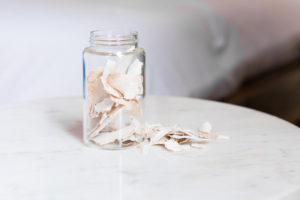
Yin Deficiency
Yin deficiency is indicated by red or pink urine, hot urine stream, mouth dryness, and other irritable symptoms. To treat yin deficiency, an herbal remedy that nourishes the kidneys and encourages urination works best.
- Plantain seed leaf
- Charred filed thistle herb
- Poria
- Peony root bark
- Chinese yam
- Cornus fruit
Hyperactive Fire (Heart)
Hyperactive fire in the Heart might come with hot flashes, insomnia, painful urination, and a rapidly pulsing tongue. To clear excess heat from the heart center, the TCM herbal remedy taken should cool down the blood and encourage urination.
- Field thistle herb
- Akebia stem
- Cattail pollen
- Lotus rhizome node
- Angelica root
- Gardenia fruit
- Licorice root
- Rhemannia root
Spleen Deficiency
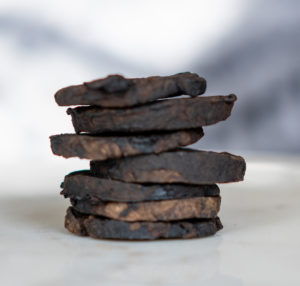 Spleen deficiency can be indicated by bloody pee, low appetite, bodily weakness, pale color, and a weak pulse. The TCM herbal remedy for spleen deficiency should energize the function of the spleen and encourage it to stop blood.
Spleen deficiency can be indicated by bloody pee, low appetite, bodily weakness, pale color, and a weak pulse. The TCM herbal remedy for spleen deficiency should energize the function of the spleen and encourage it to stop blood.
- Rehmannia rhizome
- Donkey-hide gelatin
- Hairy vein agrimonia herb
- Astragalus root
- Ginseng
- Angelica root
- Chinese senega
Yang Deficiency (Kidney)
Yang deficiency in the kidneys may trigger pink colored urine, weak urination stream, dizziness, fatigue, and sexual dysfunction. Herbal remedies that warm the kidneys and boost their ability to stop bleeding are the best.
- Deer horn gelatin
- Carbonized hair
- Couch grass rhizome
Treating Blood in the Urine with Acupuncture
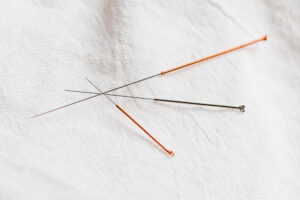 Acupuncture is the most popular form of treatment in TCM. It activates the blood vessels and stimulates energy flow (qi). When the body is activated via acupuncture, internal organs are energized, improving their self-functioning mechanisms.
Acupuncture is the most popular form of treatment in TCM. It activates the blood vessels and stimulates energy flow (qi). When the body is activated via acupuncture, internal organs are energized, improving their self-functioning mechanisms.
Internal changes that involve qi or heat are associated with urine quality in TCM. Acupuncture corrects any heat or qi imbalance by targeting specific points along the body, relieving symptoms along the way.
Hyperactive Fire (Heart)
Treating excessive heat in the heart involves acupuncture reducing techniques. These techniques are supposed to eliminate pathogens along with suppressing a hyper-active heart. Body points that may be targeted are PC8, LR2, CV3, SP9, & BI27.
Kidney & Spleen Disharmony
Treating kidney and spleen dysfunctions with acupuncture involve “evening” techniques. Here, the goal is to invigorate the spleen and kidneys. Qi is also replenished in the spleen and kidneys which assist its ability to constrict blood. Body points that may be targeted are SP1, BI26, ST36, BI20, BI17, BI23, & SP6.
Odor of Urine
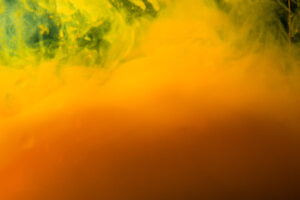 The smell of one’s urine is usually directly related to the color. Pee naturally has a bodily smell to it, but clear urine is almost odorless at times. However, yellow, cloudy, or even red coloring unmistakably produces a more noticeable smell.
The smell of one’s urine is usually directly related to the color. Pee naturally has a bodily smell to it, but clear urine is almost odorless at times. However, yellow, cloudy, or even red coloring unmistakably produces a more noticeable smell.
Dark yellow urine, which is usually a byproduct of excess internal heat, smells of concentrated urea. Going to the restroom for the first time in the morning is usually when pee is the darkest. As you’ve slept, the urine becomes concentrated in your bladder and, thus, has a deeper color and more potent smell.
The most noticeable odor comes from cloudy yellow urine. It typically gives off a strong, foul odor and is quite recognizable. Usually, in TCM, foul urine odors are a result of damp heat in the bladder or kidneys.
How to Improve Your Pee Quality with TCM
Many mild urinary issues can be treated at home without the need of a specialist.
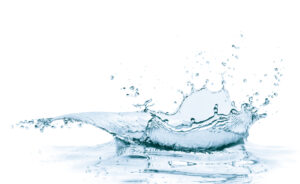 Hydrate (Liquids & Foods)
Hydrate (Liquids & Foods)
This is a given, but the best way to improve your urine quality is to drink more water. Consuming large amounts of water to flush your system is recommended. The more you urinate, the cleaner your pee will be. Drinking green tea and eating hydrating foods is just as helpful too.
People who are elderly or who have weak Kidney function should be careful not to drink too much fluid as it can weaken the kidneys further.
For example, certain vegetables and fruits have a “cooling effect” on the body’s internal heat: bottle gourd, watermelon, pears, water chestnut, mung bean, and lotus root.
Acupunture
Since the Bladder channel runs down the back, try using a foam roller or treating yourself to a deep-tissue back massage or acupuncture session. Acupuncture targets the bladder channel and stimulates your qi along that pathway, which causes a direct affect on your urine quality & overall health.
Stretching
 Traditional Chinese Medicine encourages stretching the body to improve your pee as well. Why? Stretching keeps your energy flow moving around the bladder meridians. If we know anything about TCM, we know that energy can manifest into physicality. Maintain regular exercise to sweat out toxins and keep your meridian points activated. A twisting motion that gently pounds your back above the Kidneys with your fists can be helpful too
Traditional Chinese Medicine encourages stretching the body to improve your pee as well. Why? Stretching keeps your energy flow moving around the bladder meridians. If we know anything about TCM, we know that energy can manifest into physicality. Maintain regular exercise to sweat out toxins and keep your meridian points activated. A twisting motion that gently pounds your back above the Kidneys with your fists can be helpful too
Traditional Chinese Medicine Reveals All
When one issue is experienced, another is revealed until the source of discomfort is found. Because the body is looked at in its whole form, most people feel an overall sense of heightened wellbeing.
As a medical disclaimer, the best way to treat deep-rooted, serious, persistent urinary issues is to work with a Chinese medicine practitioner who provides an individualized treatment approach. TCM is a holistic practice that connects the dots between mental, emotional, and physical health problems. Once your practitioner rules out harmful issues, the world of TCM is at your disposal.
Comments (0)
Leave a reply
You must be logged in to post a comment.




